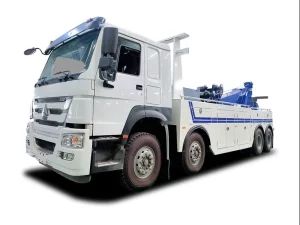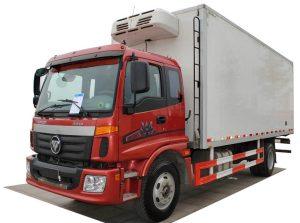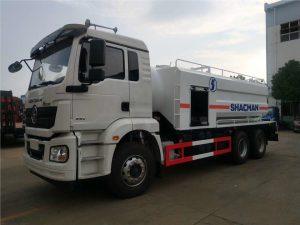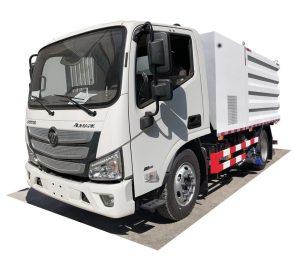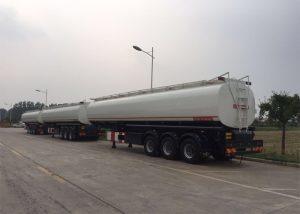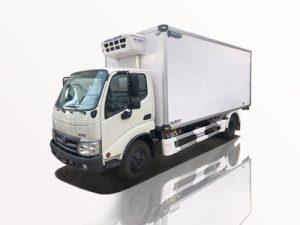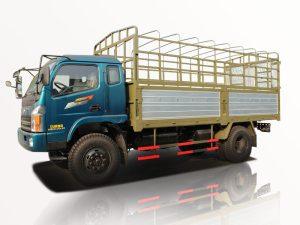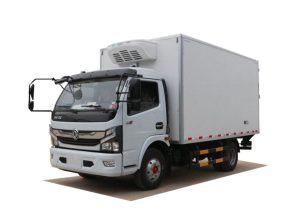Monday to Saturday - 8:00 -17:30
China Truck Isuzu Motor: Unraveling the Power and Performance
In recent years, China has emerged as a dominant player in the automotive industry, particularly in the realm of commercial vehicles. Among the many brands that have made a significant mark, Isuzu stands out with its robust lineup of trucks that cater to various logistics and transport needs. This article delves into the unique aspects of Isuzu trucks in China, focusing on their motors, performance, and overall significance in the market.
Overview of Isuzu in China
Isuzu, originally a Japanese automaker, has built a solid reputation in the commercial vehicle segment. With a strong presence in China, Isuzu has adapted its products to meet local demands while maintaining the high-quality standards associated with the brand.
History of Isuzu in China
Isuzu entered the Chinese market in the late 20th century and has since established joint ventures that have propelled its growth.
Key Milestones
- 1996: Formation of a joint venture with the SAIC group.
- 2004: Beginning of local production in China.
- 2015: Launch of the popular Isuzu N Series trucks.
Understanding Isuzu Truck Motors
Isuzu trucks boast advanced engine technology, making them a preferred choice for commercial transport across various industries.
Types of Isuzu Truck Motors
Isuzu trucks utilize a range of engines, optimized for different functionalities. The most common types are:
- 4JJ1: A 3.0L diesel engine known for its balance between power and fuel efficiency.
- 4HK1: A higher-capacity engine that delivers increased torque for heavy-duty loads.
- 6HK1: A 7.8L engine that provides maximum power for the largest Isuzu truck models.
Engine Technology and Features
The Isuzu truck motors are not just about displacement; they incorporate technology that enhances performance, durability, and efficiency.
Common Rail Direct Fuel Injection
This technology helps in better fuel atomization, resulting in improved combustion efficiency and reduced emissions.
Turbocharging
Most Isuzu engines come with turbocharging to enhance power output without significantly increasing fuel consumption.
Performance Comparison of Isuzu Trucks
It is crucial to assess how Isuzu trucks perform relative to competitors in the Chinese market. The following table summarizes the performance metrics of some popular models.
| Model | Engine Type | Max Power (HP) | Torque (Nm) | Fuel Efficiency (L/100km) |
|---|---|---|---|---|
| Isuzu NPR | 4JJ1 | 150 | 294 | 10.5 |
| Isuzu FVR | 6HK1 | 240 | 735 | 16.5 |
| Isuzu N Series | 4HK1 | 190 | 500 | 12.0 |
Practical Applications of Isuzu Trucks in China
Isuzu trucks have become integral to various sectors in China due to their versatility.
Logistics and Transportation
Isuzu trucks are widely used in logistics operations for their reliability and efficiency. Their size options, from light-duty to heavy-duty, cater to diverse logistics requirements.
Construction Industry
Heavy-duty models like the Isuzu F Series are favored in the construction sector for transporting materials and equipment.
Agriculture
Farmers utilize Isuzu trucks for transporting goods to markets, as they can carry significant loads without compromising on maneuverability.
Guidelines for Maintaining Isuzu Trucks
Effective maintenance ensures the longevity and reliability of Isuzu trucks. Here are some practical tips.
Routine Checks
- Regular oil and filter changes every 10,000 km.
- Inspect and replace air filters to ensure optimal air intake.
- Check coolant levels and battery health regularly.
Seasonal Maintenance
In regions with significant temperature fluctuations, consider the following:
- Use engine coolant with appropriate freeze protection.
- Switch to winter-grade oil for colder months.
Economic Impact of Isuzu Trucks in China
Isuzu’s trucks support not just individual businesses but also the broader economy.
Job Creation
The manufacturing and assembly of Isuzu trucks in China have created numerous jobs, contributing to local economies.
Boosting Trade
Efficient transportation using Isuzu trucks has facilitated trade both domestically and internationally, as goods move more seamlessly across regions.
Future Trends in the Isuzu Truck Market
As the automotive landscape evolves, Isuzu is poised to adapt to future trends, particularly in sustainability and technology.
Electric and Hybrid Technologies
With increasing demand for eco-friendly vehicles, Isuzu is developing electric models to reduce carbon emissions and meet consumer expectations.
Smart Truck Features
Integration of technology such as GPS, fleet management software, and connected capabilities will enhance the operational efficiency of Isuzu trucks.
Isuzu Truck Ownership Experience
Understanding the ownership experience is vital for potential buyers and users of Isuzu trucks in China.
Warranty and Support
Isuzu offers competitive warranties on their trucks, ensuring peace of mind for owners. Comprehensive service support is available across the country.
Resale Value
Isuzu trucks generally maintain good resale value due to their reliability and popularity within commercial sectors.
Frequently Asked Questions (FAQs)
1. What is the fuel efficiency of Isuzu trucks?
The fuel efficiency of Isuzu trucks varies by model. For instance, the Isuzu NPR averages around 10.5 L/100km.
2. Are Isuzu trucks suitable for rough terrains?
Yes, Isuzu trucks are designed to handle various terrains, making them suitable for construction and off-road conditions.
3. How often should I perform maintenance on my Isuzu truck?
Regular maintenance is recommended every 10,000 km or as per the owner’s manual, focusing on oil changes, filter checks, and overall inspections.
4. What are the most popular Isuzu truck models in China?
The Isuzu NPR, FVR, and N Series are among the most popular models due to their reliability and performance.
5. Does Isuzu offer financing options?
Many dealerships offer financing options for Isuzu trucks, making it easier for businesses to acquire vehicles.
6. Are there any electric Isuzu truck models available?
Isuzu is developing electric models in response to growing demand for sustainable transport options.


